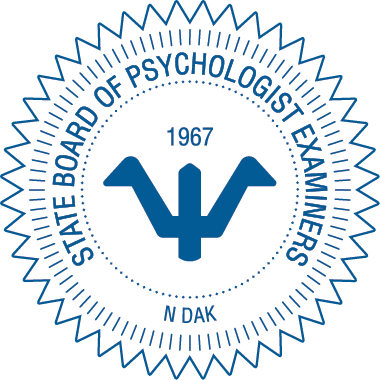CPQ
Association of State and Provincial Psychology Boards
Certificate of Professional Qualification (CPQ):
- What is the CPQ?
- The CPQ documents that a certificate holder has met specific requirements in licensure, education, examination, and training and has never had disciplinary actions taken against their license. The licensing boards that accept the CPQ have agreed to accept the CPQ holder’s educational preparation, supervised experience, and examination performance for licensure. The CPQ does not constitute a license to practice.
- How is the CPQ beneficial?
- Holding an active CPQ reduces the amount of documentation you will need to provide during the licensure application process with participating jurisdictions, provides for complementary EPPP Score Transfers, and establishes your Credentials Bank record.
- What are the requirements for the CPQ?
- There are two different types of CPQ Applications:
- CPQ-ABPP Application:
- The CPQ-ABPP option is for those who hold an active American Board of Professional Psychology (ABPP) certification.
- CPQ-Standard Application:
- The CPQ-Standard option is our standard full CPQ application for those who do not hold an active ABPP certification.
- CPQ-ABPP Application:
- CPQ-ABPP Application Requirements:
- Licensure:
- Must have a current active psychology license, based on a doctoral degree, in an ASPPB member jurisdiction, with no disciplinary action listed on any psychology license.
- Education:
- Must have doctoral degree from a regionally accredited institution, clearly listed in psychology, that included a minimum of 3 academic years of full-time graduate study.
- Official transcript must be sent directly to ASPPB from institution granting degree.
- Graduates from non-APA/CPA accredited programs must be able to demonstrate at least 1 course (3 semester credits or equiv.) in ALL specific substantive areas as identified in the Mobility Program Policies and Procedures.
- Must demonstrate a minimum of 1 continuous academic year of full-time residency* at the educational institution granting the doctoral degree.
- *Residency means physical presence, in person, at the education institution in a manner that facilitates the full participation and integration of the individual in the educational and training experience and includes faculty student interaction. Models that use in person contact for shorter durations throughout a year or models that use video teleconferencing or other electronic means to meet the residency requirement are NOT acceptable.
- Professional Work Experience:
- Must demonstrate at least 5 years of professional, post-licensure work experience at the independent level, verified by a licensed doctoral level psychologist who was licensed during the entire time period attested to.
- Licensure:
- CPQ-Standard Application Requirements:
- Licensure:
- Must have a current active psychology license, based on a doctoral degree, in an ASPPB member jurisdiction, with no disciplinary action listed on any psychology license.
- Education:
- Must have doctoral degree from a regionally accredited institution, clearly listed in psychology, that included a minimum of 3 academic years of full-time graduate study.
- Official transcript must be sent directly to ASPPB from institution granting degree.
- Graduates from non APA/CPA accredited programs must be able to demonstrate at least 1 course(3 semester credits or equiv.) in ALL specific substantive areas as identified in the Mobility Program Policies and Procedures.
- Must demonstrate a minimum of 1 continuous academic year of full-time residency* at the educational institution granting the doctoral degree.
- *Residency means physical presence, in person, at the education institution in a manner that facilitates the full participation and integration of the individual in the educational and training experience and includes faculty student interaction. Models that use in person contact for shorter durations throughout a year or models that use video teleconferencing or other electronic means to meet the residency requirement are NOT acceptable.
- Supervised Experience:
- Must have two years of supervised experience, at least one of which shall have been completed after doctoral degree was conferred, for a minimum of 3,000 total clock hours. The minimum standard requirement shall be 1 hour per week of individual face-to-face supervision from a licensed doctoral psychologist.
- Each year [or equivalent] shall be comprised of no less than 10 months, but no more than 24 months, and at least 1,500 hours of professional service including direct contact, supervision, and didactic training.
- Professional Work Experience:
- Must demonstrate at least 5 years of professional, post-licensure work experience at the independent level, verified by a licensed doctoral level psychologist who was licensed during the entire time period attested to.
- Licensure:
- There are two different types of CPQ Applications:
- How do I apply?
- First, log into your PSY|PRO account at www.psypro.org (if you do not yet have an account, you will need to create one). On the right-hand side of your screen, select “Applying for the CPQ” under “Select an Activity”. Then, complete the application to its entirety.
- How do I request verification of my CPQ?
- You may request an official verification of your CPQ to be sent to any of the participating jurisdictions. To do so, log in to your PSY|PRO account at www.psypro.org. Under the Activity Summary you will see your “Certificate of Professional Qualification (CPQ)” and the action for “Official Verification Request” to the right. Select this option and complete the workflow in its entirety.
- ASPPB’s CPQ Website Link:
